For the third time, the Government of Montenegro has organised its open and expanded session here at the Government House in Cetinje. This is a chance to recapitulate, in the presence of our key partners, the major activities and results achieved over the past year, which also largely determine the Government’s course of actions in 2016.
Dear members of the Government, Dear guests, Dear representatives of the media, Ladies and Gentlemen, For the third time, the Government of Montenegro has organised its open and expanded session here at the Government House in Cetinje. This is a chance to recapitulate, in the presence of our key partners, the major activities and results achieved over the past year, which also largely determine the Government’s course of actions in 2016.
By tradition, this session is attended by the highest representatives of the judiciary, namely the Judicial Council, Supreme, Constitutional, Appellate, Commercial and Administrative Courts, Supreme State Prosecutor and Chief Special Prosecutor, and presidents of the Bar, Notary Chamber and Chamber of Public Enforcement Officers. The attendees also include the SAI Senate President, Central Bank, Association of Banks, local government officials, trade union leaders, representatives of business associations and a number of public enterprises and foreign investors in Montenegro.
The National Coordinator for NATO, Chief Negotiator with the EU and Secretary of the Secretariat for Legislation are seated at the same table as the Government members. This symbolically illustrates the top priorities of the Governments policy during this year and the key results we have achieved.
I would like to thank all the Government partners, all of you involved in Government policies and participating in the dynamic social progress of Montenegro. Our cooperation and your presence here bring more transparency, diversity and responsibility to the work of the Government. I wish to give special thanks to the media, which play an important role in this.
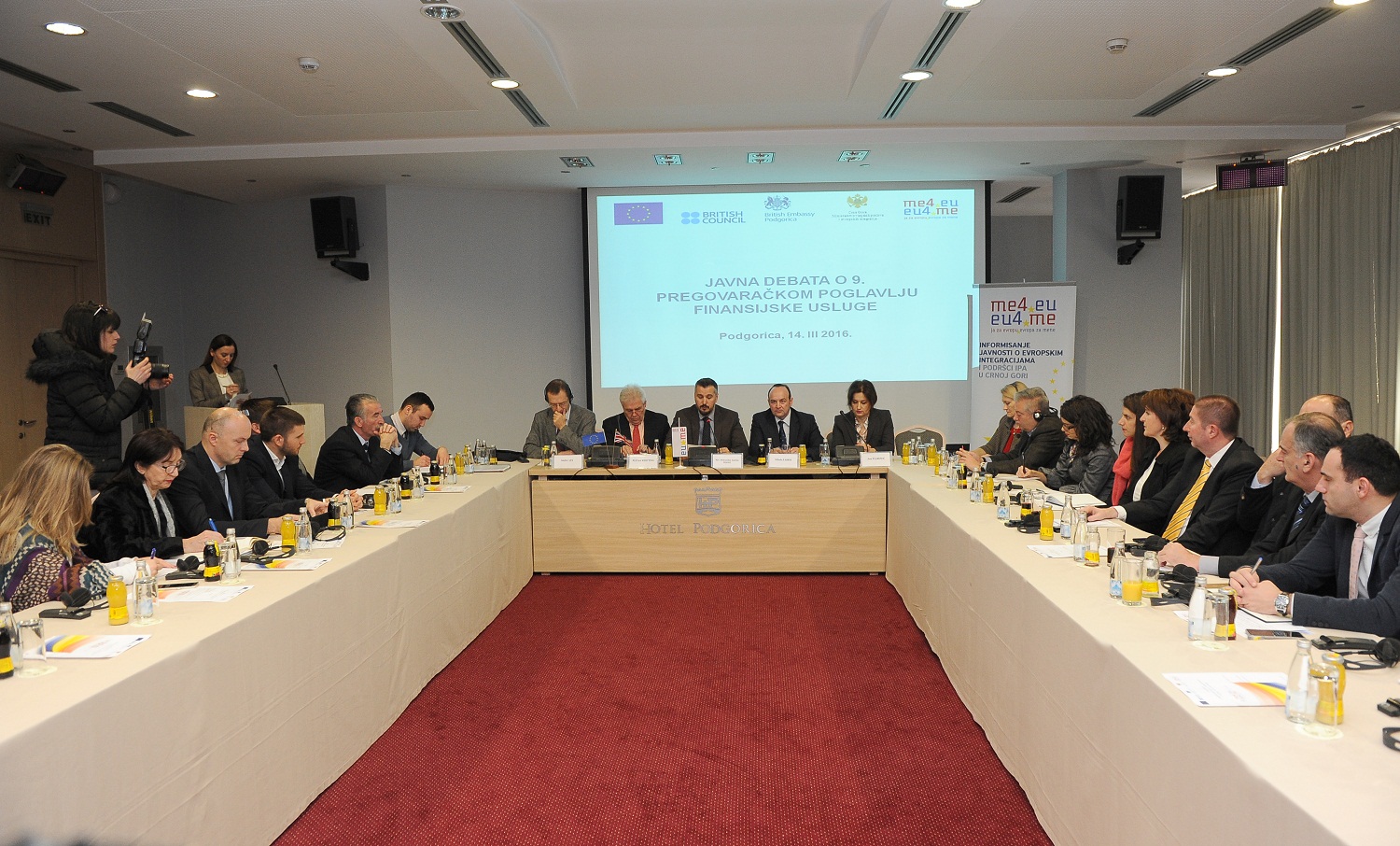
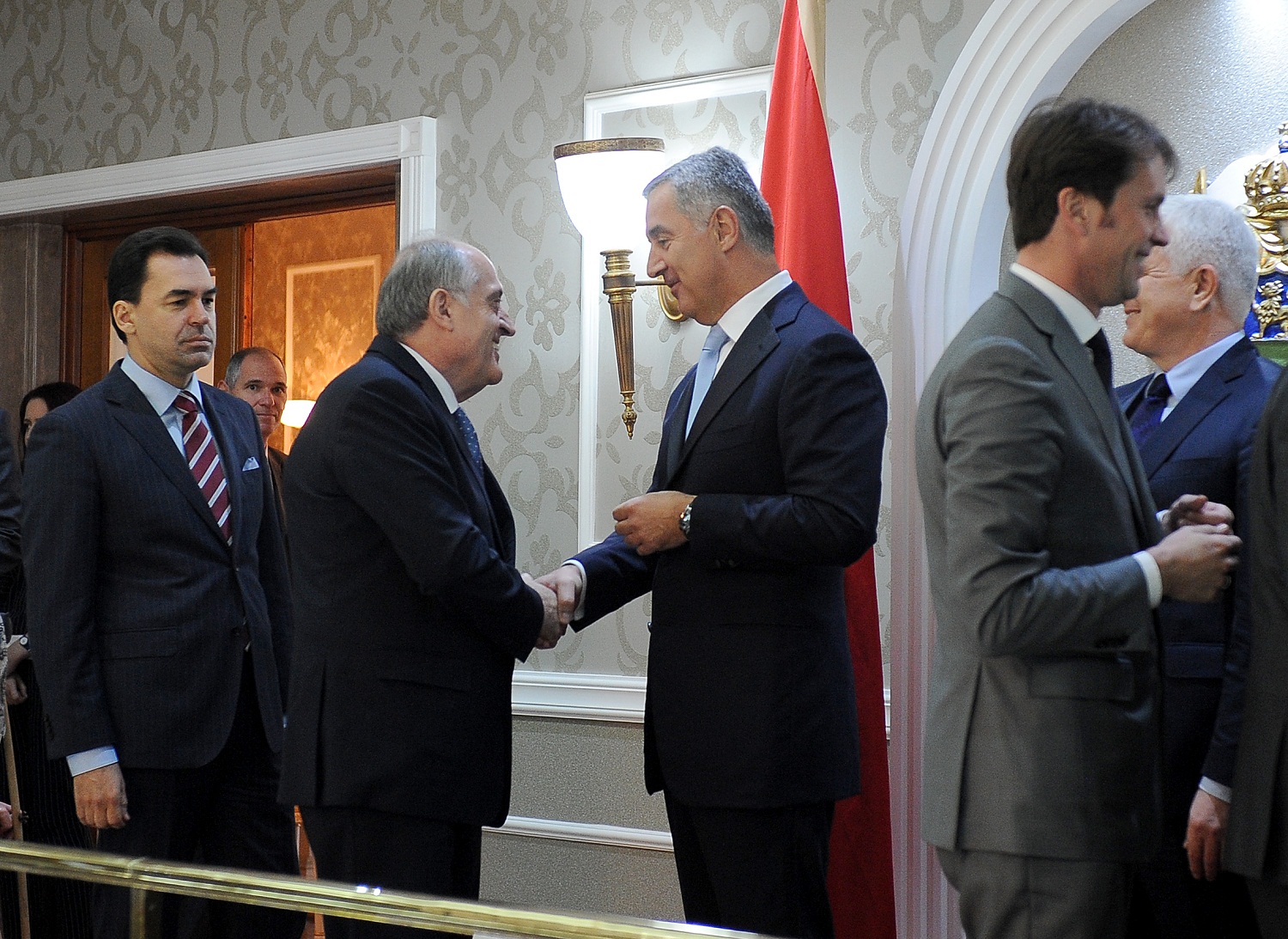
Ladies and Gentlemen,
I believe that this year, in terms of political and economic achievements that guide the long-term development of the state, has been the most important one in the recent Montenegrin history since the restoration of independence in 2006. This is so primarily given the NATO’s decision to extend membership invitation to our country. This represents achievement of one of the most important strategic goals of Montenegro’s national policy. This comes as a well-deserved acknowledgement of the quality and range of the implemented reforms, principally in the areas of defence, security and rule of law, as well as of the results in improving the level of public support for NATO membership. This is also unanimously seen as a good decision for the region, the most reliable path towards its stability, prosperity and secure European prospects. The same goes for the Alliance, which has confirmed that its door remains open for the countries implementing the required reforms to meet NATO standards and contribute to broader security. The decision is even more important for our country bearing in mind the geopolitical context at the time it was passed and the fact that, for the first time in the recent history of NATO enlargement, the invitation was sent to a single country, from the ministerial level, between two summits. All this additionally obliges us, as a small Balkan country, to continue the reforms with even greater committment, as they do not end upon obtaining full membership or after that. As well as increasing the level of public support to NATO membership. Other countries’ experience shows this was the logical path to take following the invitation. I am sure that this will serve as additional motivation to continue down the right path our country has taken.
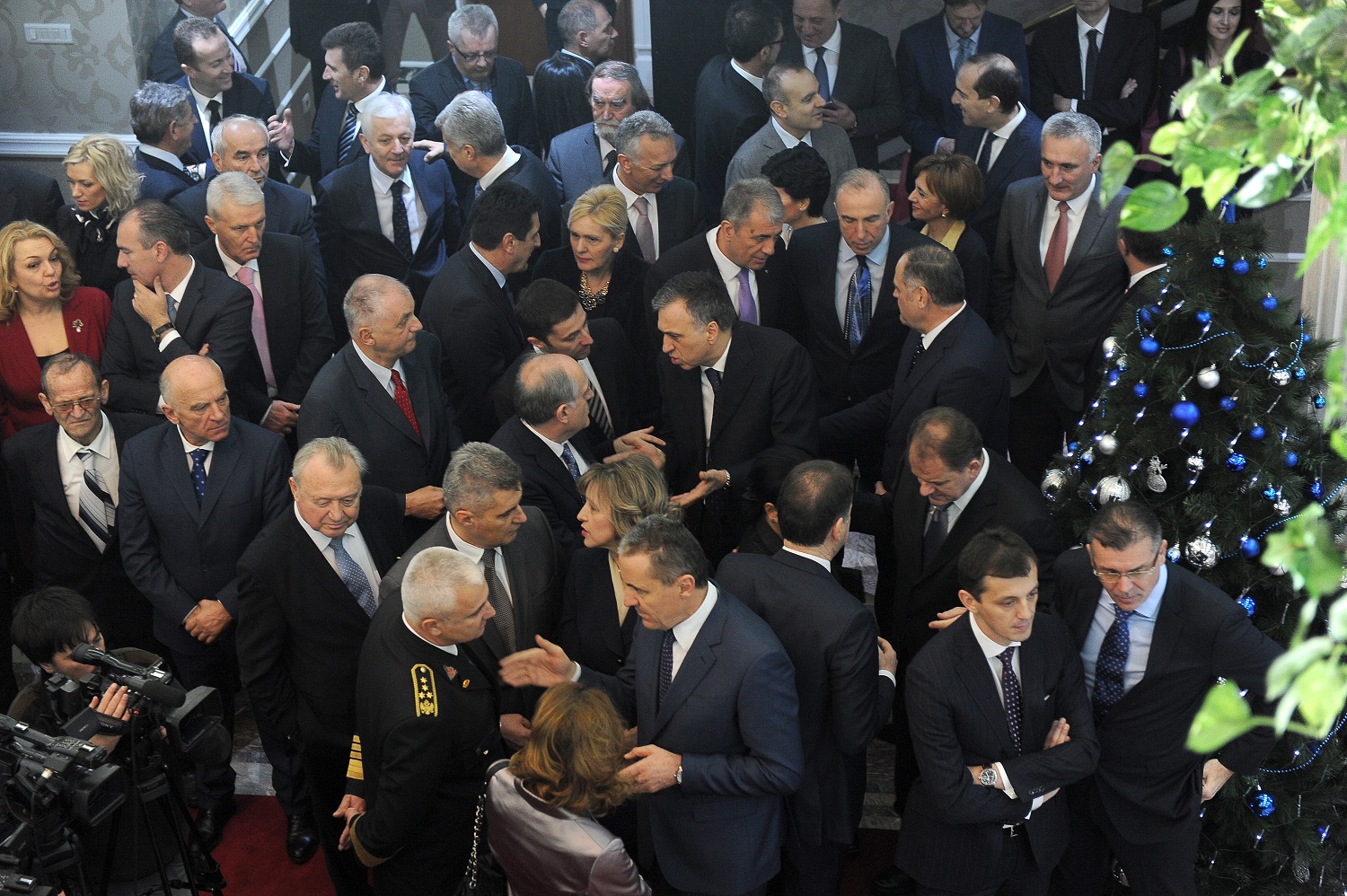
During this year which is nearing its end, Montenegro has made significant steps forward in its negotiations with the EU. We can truly be glad to state that the quality and pace of EU accession are excellent. The results achieved objectively make us the leader in the region when it comes to European integration. This year, we opened 6 new Chapters – 2 of them three days ago (9 – Financial Services, 16- Taxation, 21 -Trans-European Networks, 30 -Foreign Affairs, 14- Transport Policy, and 15- Energy ). It is important to highlight the opening of all of the “infrastructure-related“ chapters, as the ones directly linked with the Berlin Process and regional networking. In total, 22 chapters have been opened, and 2 temporaly closed. We have also met the opening benchmarks for 7 chapters, majority of which are considered to be the most demanding ones (1-Free Movement of Goods, 11-Agriculture and Rural Development, 12-Food Safety, Veterinary and Phytosanitary Policy, 13-Fisheries, 14-Energy, 19-Social Policy and Employment, 22-Regional Policy and Coordination of Structural Instruments). By securing the preconditions for starting with the negotiations under such demanding chapters of the acquis, Montenegro has shown the readiness of its administration to meet even the most complex obligations from the European agenda. We have worked with committment to meet also the closing benchmarks. This has brought us a step closer to the EU.
In the upcoming period, we expect the closing of the negotiations under the initial chapters of the acquis where benchmarks have been set. Montenegro’s Accession Program, as the most important national strategic paper in the area of European integration, has had a high rate of implementation in 2015. Here are some details in regard to this. Out of the total of 253 laws and by-laws, 223 or 88% have been implemented. Out of the total of 51 strategic paper, as many as 50, or 98%. IPA funds provide significant support to our reform activities. We have achieved a very high absorption rate. This is an important indicator of the quality of administrative capacities. 93% of IPA 1 has been contracted, with 78% of funds already disbursed. This is considered extraordinary success, confirming the readiness of Montenegrin institutions not only for planning and programming but for project implementation as well. We have demonstrated a fully responsible approach in using EU grants. Montenegro ranks first in the region when it comes to the number of cross-border projects. In this and in the area of transnational cooperation we have implemented 69 projects, accessing 15,6 million euros, in such major fields as economic cooperation,environmental protection, tourism, agriculture, culture, education, social cohesion, together with a number of small-scale infrastructure projects. A week ago, at the WBIF meeting, Montenegro was granted approval for six energy and transport projects, worth 50 million euros. This will considerably contribute to better connectivity with the region and Europe, and to the implementation of the Connectivity Agenda, regarded by the EC as very important.
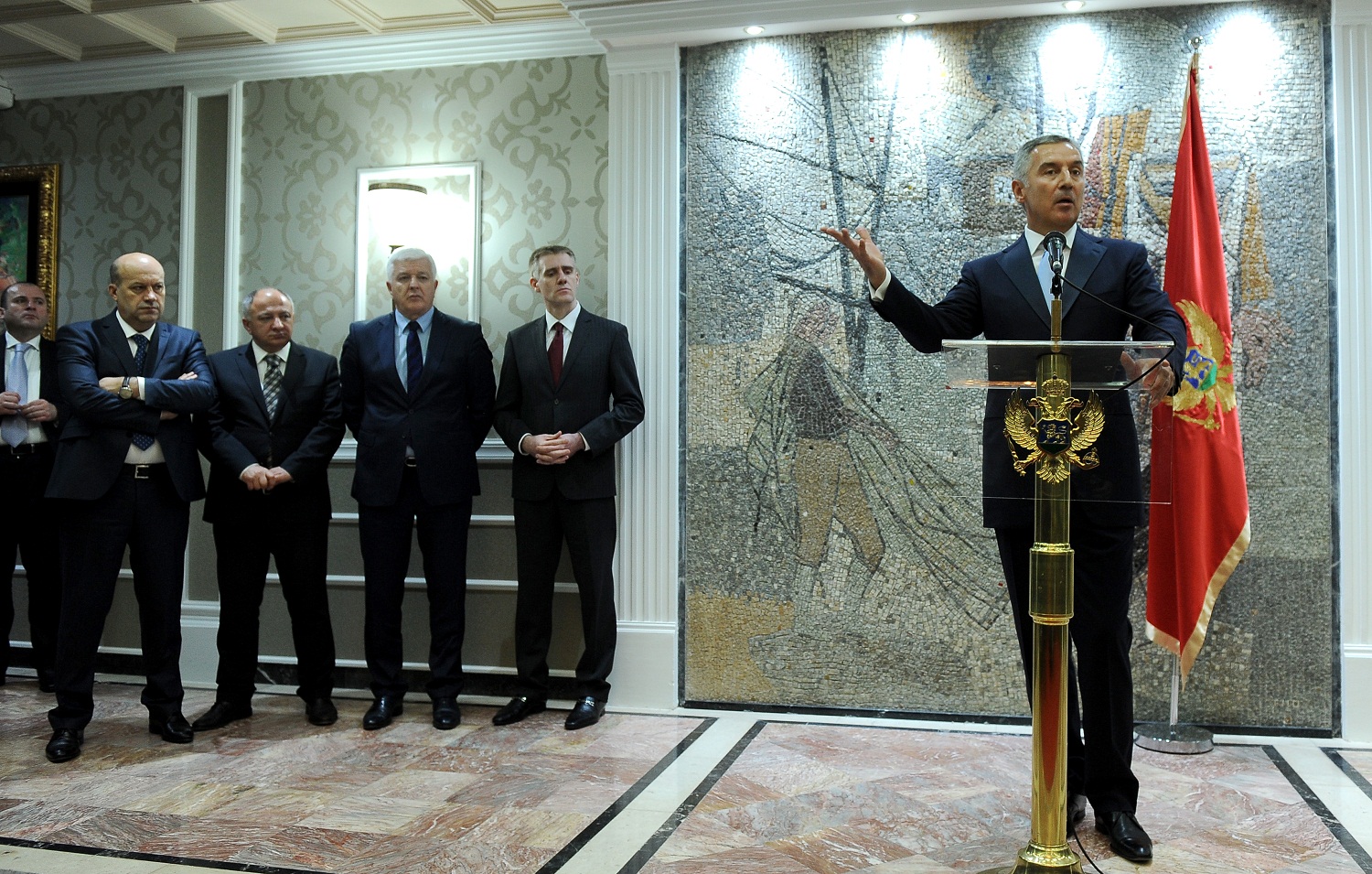
In 2015 again particular effort has been invested in the area of the rule of law and negotiations under chapters 23 and 24. Early in the year, we adapted the action plans for these chapters, to correspond to the meeting of 83 demanding interim benchmarks. A set of laws on the judiciary was adopted in February, followed by the additional laws pertaining to the fight against organized crime and corruption. Since the opening of negotiations on chapters 23 and 24, 47 reform laws have been adopted, thus completing the regulatory framewrok in this field. We have focused additionally on establishing the key institutions. Special Prosecutor’s Office has been set up and started with efficient operation. Specialised units to fight corruption and organised crime have been set up within the police. The Council and Director of the Anti-Corruption Agency have been appointed. Final preparations are underway for this body to begin operation next year. Significantly improved results have been achieved also in the implementation of adopted legislation. Numerous steps forward are evident in the judiciary. The length of the proceedings and the number of pending cases have been signifiicantly reduced. Judging by the share of disposed cases against the inflow of new civil cases, the Montenegrin judiciary is ranked among the best performing ones in Europe, together with the German, Austrian and Ukrainian counterparts. In addition, with regard to the inflow of criminal cases, in the first instance, Montenegro is ranked among the top performers in Europe, together with Germany, France, Soan and Serbia. These are major steps forward in further strenghtening of the rule of law, independence, autonomy and efficiency of the judiciary.
All this has also been recognised in the November 2015 EC Country Report for Montenegro. This is the most positive report on our country so far. Concrete progress with reforms is evident, especially in the rule of law area. Progress is noted in almost all chapters of the negotiation process. Continuous progress is noted for 17 chapters, while 13 chapters assigned better rating across all categories of assessment. We should bear in mind that this is the first EC Report to follow the comparative methodology for candidate countries. All of these results certainly were taken into account by the NATO members and administration when deciding on the invitation to Montenegro. We assign particular importance to the assessments in the Report on the chapter where necessary progress is not noted, as the Government will pay additional attention to these in the coming period.
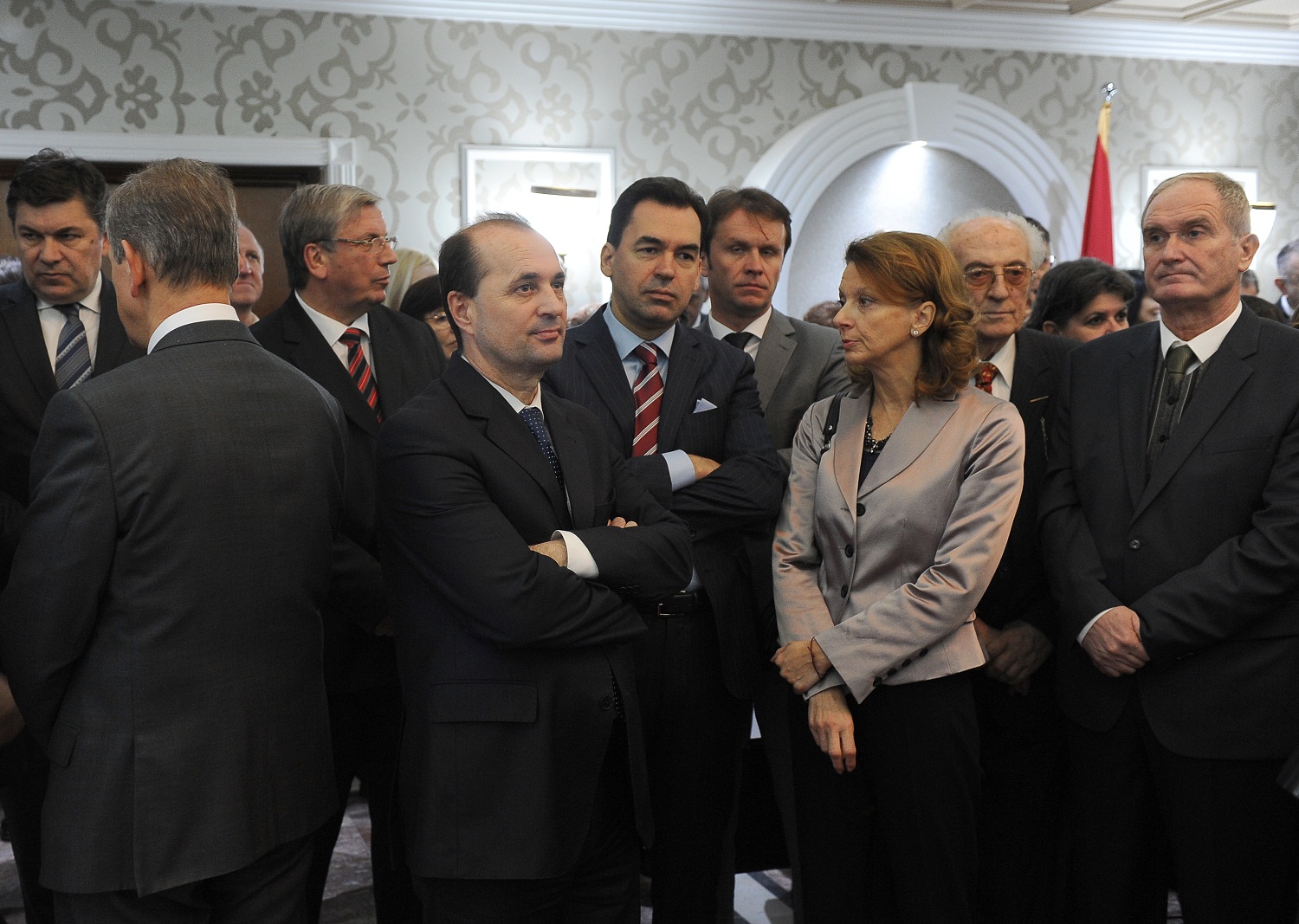
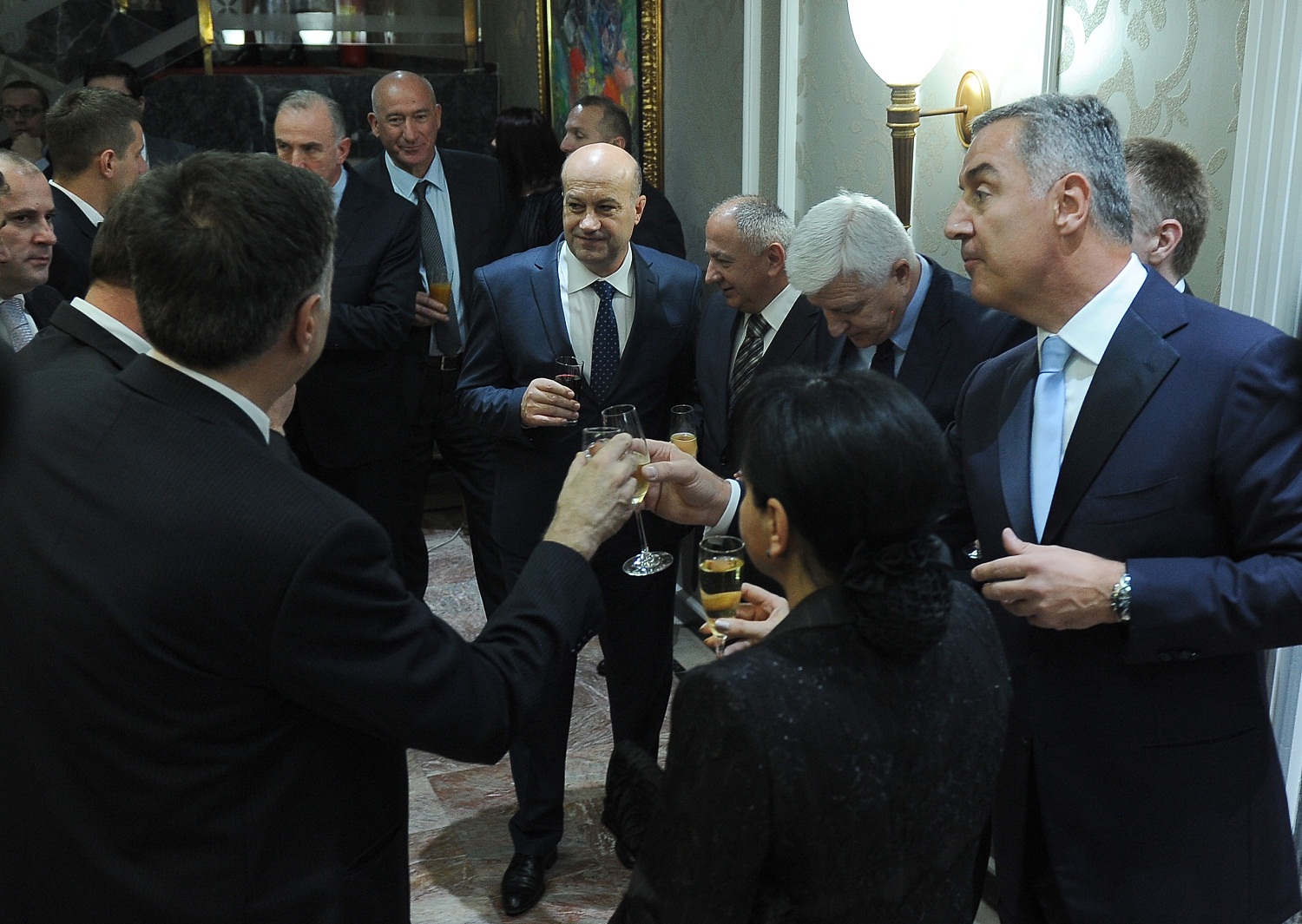
Our country has kept the top position in the region as an important factor of stability and cooperation. This has been confirmed, inter alia, by the signing of the Demarcation Agreements with Bosnia and Herzegovina and Kosovo, as the first ones of this kind to be signed between the countries formed at the territory of former Yugoslavia. We have had an active role in all of the regional initiatives. We assign particular importance to our participation in the Berlin process, as confirmed at the Vienna Summit in August this year. The outcome document includes the decision to provide to the region, including Montenegro, the funds for the project documentation and some of the works for some of the most important infrastructural projects. These are projects of regional relevance, within the Core Transport Network in the Western Balkans, integrated into the European Transport Network. These include the section of the Adriatic-Ionian corridor, with the fast-lane known as Debeli Brijeg-Sukobin crossing Montenegro. Also the Bar-Belgrade-Budapest railroad, that is the Bar-Vrbnica section running through Montenegro. Naturally, also the continuation of the already initiated highway project, with the sections from Mateševo to Andrijevica, and the bypass around Podgorica. As stated earlier, Montenegro has been allocated grants for energy interconnection with Serbia and Bosnia and Herzegovina; the project to improve safety along the whole Bar-Vrbnica section; rehabilitation of the concrete bridges and signal system along the BAR-Vrbnica railroad; feasibility study on the Adriatic-Ionian corridor section running through our country; the project for improved energy security, and the environmental impact assessment for the Gasification Master Plan for Montenegro. Our country is very active also in the 16+1 Program of cooperation between the PR of China and Central and Southeast European countries. Out of the total of 10 billion of loan funds under this programme, approx. 10% has been allocated for the implementation of various projects in Montenegro.
Montenegro has asserted itself as a credible partner also through the UN system and other international organisations. This year marks the completion of our three-year membership in the Human Rights Council. I believe that the contribution to universalisation of human rights will recommend our country, one of the youngest UN members, recognised for its multiethnic harmony, for another term in this most recent UN body for the period 2022-2024, which we have applied for.
We can say that 2015 has been successful also in term of the results of the economic policy. The expected economic growth is considerably above planned, almost 2.5 times higher than the regional and EU average, and among the highest in Europe. According to the latest EC forecast, the projected economic growth in 2015 will be 1.6% in the Eurozone and 1.95 in the EU. Concurrently, the expected growth in the region is 1.8%. This is somewhat better than last year. However, low competitiveness still remains the key reason of the anemic economic growth in our region. This year, Montenegro will achieve the economic growth of circa 4.3%. This comes largely as a result of the good tourism season, the pace of implementation of investment projects, and better industrial growth of 10.95 for the 11 months. Out of the EU member states, only Ireland will have achieved higher economic growth than Montenegro, of around 6%, while only Malta and the Czech Republic anticipate the 4.3% rate. Considerable increase in FDIs has also been recorded – 526 million for the 9 months (353.9 million in 2014). By the end of the year, the FDI share in the GDP will be in the range of 16%, considerably higher than last year. Record results have been achieved in tourism. In 10 months, Montenegro was visited by almost 1.7 million tourists, which is some 13% more compared to the same period last year. The number of overnights in the same period was close to 11 million, which is an increase of 15.56%. Most importantly, tourism revenues have grown by 12.1%, equaling 789.3 million euros. Such growth, according to MONSTAT Labour Force Survey, impacted the employment rise to 45.9%, and the unemployment drop -16.5%.
Montenegro’s level of development compared to the EU average at the end of this year is 41%, one percent higher than 2014. This is the best result in the region, but still very far from the European quality of life. Clearly, in the coming period we require continually higher growth rates. The average salary is 482 euros, higher by 1% compared to November last year. At the same time, the average pension is 270.78 euros, which accounts for approx. 57% of average salary. Salary scheme reform has been initiated by approving the draft law on salaries in the public sector. This is a policy aiming towards better control, correction of inequalities and greater transparency of the salary scheme, leading to greater fiscal responsibility.
The positive trends in the economy are reflected in some living standard indicators, such as the Human Development Index. According to the latest UNDP report, Montenegro is ranked 49th on the list of 188 countries. This places us in the category of countries with very high level of development according to this indicator, ranking Montenegro better than any other WB country, better even than some EU member states.
We have achieved one of the programme priorities of this Government, announced at the end of 2012 – strengthening of microeconomic stability. The financial system, primarily the banking system, is stable and healthier. The banking sector is liquid, and the share of non-performing loans in total loans has dropped from 16.78% to 13.3% compared to the previous year. Credit activity of banks has increased, and business results of majority of banks in the first three quarters are positive.
We have maintained a competitive tax environment. Montenegro is one of the countries with the lowest corporate income tax and personal income tax. Also, VAT is amongst lower in Europe. We have introduced fiscal preferences for investments in the sectors of high-end tourism, food industry and capital infrastructure and energy. These investments imply the right to exemption from VAT, customs, utilities, fees and duties with a view to taking the best advantage of the economic resources. As announced, we are continuously reducing to the total abolition of personal income tax rate, from 13% to 11% in 2016. We have allocated up to EUR 10.000 of subsidies per work place for investment projects whose minimum value of the investment amounts to EUR 500.000, and which ensure minimum 20 new jobs.
Credit support of the Investment and Development Fund of Montenegro has continued under extremely favourable conditions, and it amounts to over EUR 100 million in 2015. This has also contributed to the beginning of the process of reducing tax rates in the banking sector of Montenegro after a longer period of time. This has ensured the opening of 1.783 new jobs, and maintaining of 2.731 existing jobs. Conditions have been created for agricultural loans from the Abu Dhabi Fund. Four agreements worth EUR 12 million have been signed, with interest rate of 2.4% over 17 years and 4 years of grace period. First contracts have been signed for implementation of funds under the IPARD-like programme, of which 54% have been signed with agricultural producers from the north. Their value is around EUR 10 million, of which EUR 5 million are grants. Eighty-two individual projects worth around EUR 2 million have been completed through the MIDAS project and investment support measures from agricultural budget, half of which are grants. One hundred new jobs have been created through these projects alone.
Reform measures in the educational sector during this year have been focused, inter alia, on establishing a link between the educational sector and labour market needs. The 2015 programme of professional development of persons with higher education involved 3.458 beneficiaries. This programme will continue from January 2016 by professional development of another 3.452 beneficiaries. In the sector of science, modernisation of scientific and research infrastructure and interconnecting of the scientific and economic communities has continued by building of the scientific and research centre “Tehnopolis” in Nikšić, the completion of which is expected next year. With regards to the health system reform, necessary system improvements have been defined with the ultimate goal of improving of the level of health care services.
Implementation of the largest development project has started this year – construction of the first section of the Bar-Boljare highway: Smokovac-Mateševo. Construction of projects has continued or started in energy, tourism and agricultural sectors. I will mention only some of them: works have continued on the undersea energy cable between Montenegro and Italy; construction of wind farms has started in Krnovo and Možura; implementation of 21 contracts for construction of 41 small HPPs of total installed power of 72 MW and planned annual generation of 224 GWh is ongoing (6 small HPPs have been commissioned this year); works on large projects in tourism have continued – Porto Montenegro, Portonovi and Luštica Bay; the investor has been selected for construction of Thermal Power Plant 2 Pljevlja; proposal of the decision on awarding a concession contract for the oil and gas exploration in the submarine area of Montenegro has been initialled and will be submitted to the Parliament for decision; communication has been intensified with potential investors from a number of countries in order to create conditions for construction of hydro power plants; production has commenced and increased in the companies “Vektra Jakić” Pljevlja”, “Javorak” Nikšić”, “Biotel” Andrijevica …
Ladies and gentlemen,
The results in the field of internal economic and democratic development, and progress in the process of NATO and EU integrations, are even more significant since they have been achieved in the conditions of recomposition and antagonising of the political scene in Montenegro. The reasons for this are multiple. Internal divisions and political regrouping have happened in opposition parties, and in the entire opposition block, so far without effect on the meaning of opposition and without stronger political competitiveness which would contribute to the quality of politics. The governing coalition, specifically SDP, has not been immune to the divisions either, which further increased the mistrust within the block of the parties in power. The opposition has continued their practice of attempting to build their legitimacy by forcedly opposing everything that is proposed by the Government, even to the obvious detriment of the State, instead on credible political programmes which would qualify them as a real alternative to the current Government. Recently, a part of the opposition opted for violent attempts to occupy state institutions by openly calling for external interventions which would prevent Montenegrin sovereignty and implementation of national priorities, including NATO membership. However, the largest political problem of Montenegro in 2015 has been the abandoning of standard political formulas of the relationship between the Government and the Parliament – specifically the relationship between the Government and Parliamentary majority which represents the Government coalition – the winner of the most recent parliamentary elections. This has blurred the line of clear accountability both at the relation position-opposition, and between legislative and executive power, and functionality of the constitutional division of power has been jeopardised. That is why we have faced making of decisions which are contrary to economic and national interests of the country, with party-political pretexts of social justice, rule of law and democratisation of the society. Still, internal stability has been preserved even in such conditions, and these unfavourable processes have been channelled towards democratic maturing of the society, which has been acknowledged by international partners and reaffirmed by the decision to invite Montenegro to join NATO, positive assessments in the Country Report of EC and by opening of new chapters in the negotiation process with the EU.
Ladies and gentlemen,
The most important interest of Montenegro in the next period is to accelerate economic and democratic development. Therefore, the goal of this Government, and I believe the goal of future governments, is to ensure long-term stable and dynamic economic growth of 4.5% annually. It is the only way we can catch up with the developed Europe in the foreseeable future and compensate for centuries of falling behind. That is why our preoccupation in the next year will continue to be preservation and improvement of political and macroeconomic stability, with the necessary increase of the level of competitiveness of our economy. The key indicator of Montenegro’s macroeconomic stability is the fiscal and financial stability, which mainly relates to the stability of the banking sector and reducing of interest rates. This also relates to GDP growth, maintaining of low inflation rate and reducing unemployment, that is to say employment growth, and decreasing trend of deficit of the current account balance. The greatest challenge in the next year will certainly be the preservation of fiscal stability through reform measures which should contribute, in mid-term, to bringing the budget deficit and public debt back to the Maastricht limits. In addition, a more efficient implementation of initiated structural reforms is necessary with a view to cutting public spending and, primarily, advancing the quality of these services.
This is the process which is unique to every country. In the case of Montenegro, quality infrastructural links and accessibility are extremely important for raising competitiveness. The model of successful development and rising of competitiveness is based on the quality and transparent work of the Government, care for people and good legislation. It is equally based on the quality infrastructure, not only physical infrastructure (roads, railway, ports, energy …), but adequate educational and health system. It is equally based on a strong and healthy private sector.
Given the fact that the economic growth in 2016 will depend on further growth of foreign direct investments, permanent advancement of the business environment and elimination of business barriers will remain basic premises of the Government’s work in 2016.
In parallel with structural reforms, we will continue with more efficient implementation of large development projects in road infrastructure, energy, tourism, agriculture …
We need new quality of political stability and functionality of institutions for this. Our internal development, in particular our increasingly deeper integration into NATO and the EU structures, requires a higher level of dedication of all political and social stakeholders to defined national interests. It also requires an enhanced level of political culture in our society, which means closing the door for destructive and anti-Montenegrin activities of political parties wishing to continue confronting with nationally responsible, anti-fascist Montenegro, and encouraging political parties’ competition in terms of boosting the quality of life of every individual in our society.
The elections next year are the opportunity to form, through this regular process, in the spirit of achieved democratic heritage, a credible and functional government which will be fully dedicated to creating conditions for improvement of the quality of life and strengthening of stability of the society. The primary task of all responsible political and state structures is to create maximum preconditions for organising a democratic, transparent election process, through internal dialogue and with technical and expert support of international partners, the results of which will allow the future Government and legislative authorities to achieve further progress
All of this will make our obligations in NATO accession negotiations easier and accelerate the Accession Protocol ratification process, and fulfilment of obligations in the EU negotiations process.
I believe that we agree that this has been, without doubt, another very successful year for Montenegro. We have reasons to be optimistic that the next year can be even more successful.
MILO ĐUKANOVIĆ, PRIME MINISTER OF MONTENEGRO
(Address at the third open session of the Government, Government House, Cetinje, 24 December 2015)







